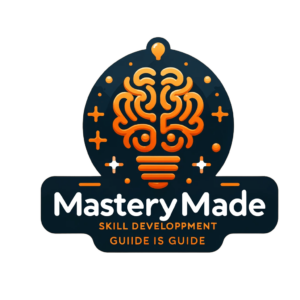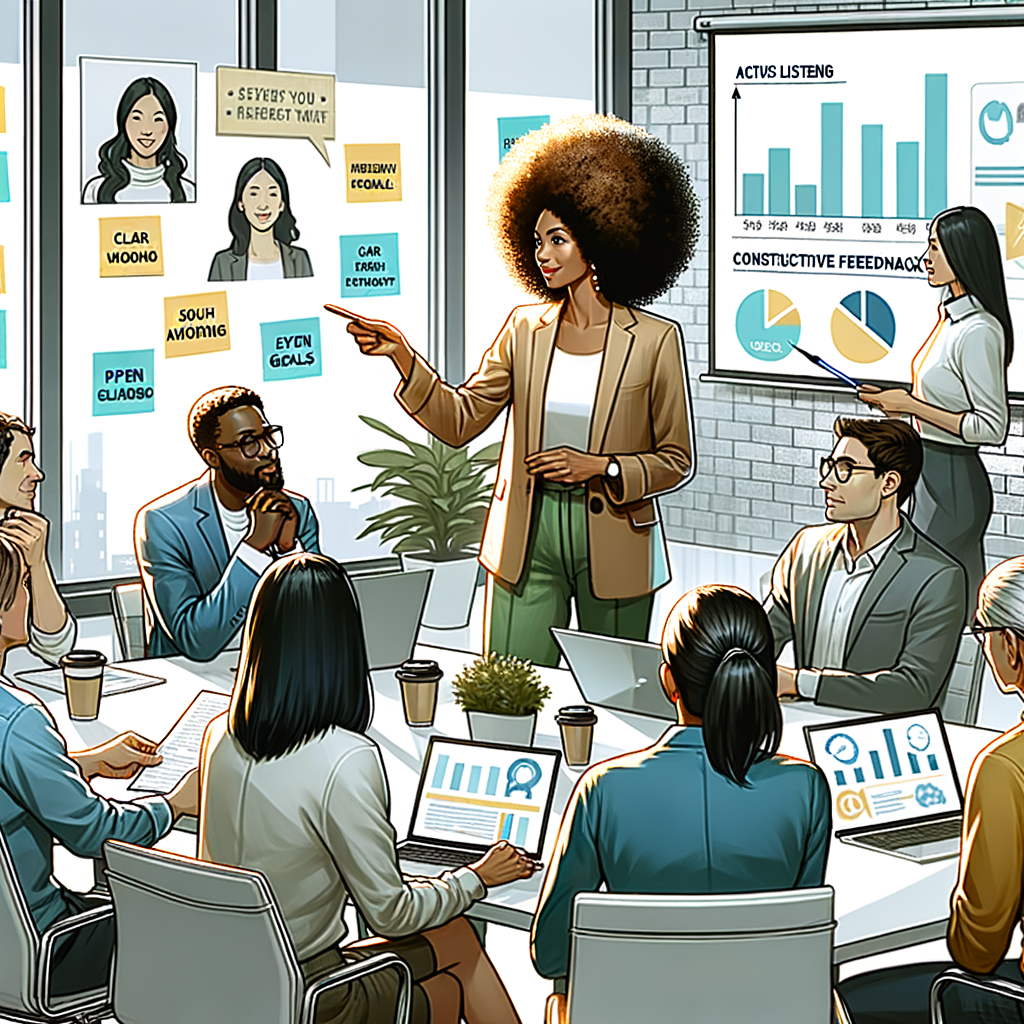Welcome to the beginning of your transformative journey towards self-improvement and professional excellence. In this ever-evolving era, the power to improve skills and broaden our horizons is not just a luxury—it’s a necessity. That’s why we’re here to discuss the importance of skill development guides and how they can be instrumental in not only enhancing our existing talents but also in acquiring new proficiencies.
By leveraging well-structured skill development guides, we unwrap a world of possibilities where learning becomes a perpetual engine driving our personal and professional growth. Whether you are looking to climb the career ladder or just aiming to enrich your personal toolkit, comprehending how to develop skills effectively is key. Join us as we explore the vast landscape of skill enhancement and how it can lead to a more fulfilled and successful life.
Key Takeaways
- Grasping the role of skill development guides in fostering continuous learning and growth
- Understanding the essential nature of skill improvement in personal and career advancement
- Getting acquainted with the structured approaches provided by guides for efficient learning
- Recognizing the diversity of resources available to support your skill development journey
- Embracing the concept of lifelong learning as a pathway to unlocking new opportunities
Understanding the Importance of Continuous Skill Development
In today’s rapidly evolving landscape, the significance of constant skill growth cannot be overstated. We live in an era where lifelong learning is not only beneficial but essential for staying relevant in the competitive job market. The inclination towards skill development strategies and methods is a testament to the proactive pursuit of knowledge and proficiency that leads to personal and professional triumph.
Adapting to technological change is a constant battle, and updating one’s skill set through enhanced skill development strategies can be the difference between leading the charge or trailing behind. And it’s not just about technical chops—interpersonal skills and adaptability are equally critical in the modern workplace, requiring a perpetual commitment to improvement.
While it may seem a daunting task, the benefits of skill enhancement methods extend far beyond mere job performance. There’s an intrinsic value in personal growth and satisfaction that comes with mastering new competencies. It sparks a sense of accomplishment and confidence, driving us to aim higher in all aspects of life.
| Benefits | Professional Impact | Personal Fulfillment |
|---|---|---|
| Competitive Edge | Up-to-date with industry standards | Confidence to take on new challenges |
| Technological Proficiency | Efficiency with new tools and platforms | Engagement with digital advancements |
| Adaptive Techniques | Resilience in the face of change | Continuous sense of achievement |
| Communication Skills | Stronger professional relationships | Enhanced social interactions |
We understand the importance of commitment to lifelong learning, which is why we constantly seek effective skill enhancement methods. Adopting a strategic approach toward skill development strategies, tailored to our individual needs and goals, ensures that we’re not just participating in the race but setting the pace.
Identifying Personal Strengths and Areas for Growth
Embarking on the journey to improve skills begins with a clear understanding of where we currently stand. It’s like setting out on a voyage; we must know our starting point to navigate towards our destination effectively. Before we rush into setting skill goals, let’s take a calculated approach to assess the abilities we already possess and identify those we wish to enhance.
Assessing Your Current Skill Set
Recognizing our innate talents and the areas we excel in lays a robust foundation for further growth. We recommend conducting a personal skills audit – a self-evaluation exercise where we list down our competencies and honestly rate our proficiency in each area. This process doesn’t just highlight our strong suits but also shines a light on the skills that require an extra push.
In this self-review, it’s beneficial to gather external feedback. Touching base with colleagues, mentors, or coaches provides a multi-dimensional view that combines internal self-assessment with external observations, ensuring a more comprehensive skill evaluation.
Setting Achievable Skill Enhancement Goals
After we’ve mapped out our current skills landscape, it’s time to chart the course towards targeted skill development tips. SMART goals – that is, goals that are Specific, Measurable, Achievable, Relevant, and Time-bound – are invaluable here. They guide us in setting objectives that not only stretch our capabilities but are also realistically attainable within a defined timeframe.
- Specific: Clarify the skill you wish to improve; for instance, leadership or coding.
- Measurable: Outline how you will measure improvement; perhaps through project success or code complexity.
- Achievable: Set a level of improvement that is attainable; improving a coding skill by building an app, rather than aiming to create the next operating system.
- Relevant: Ensure that the skill aligns with your career aspirations or personal growth goals.
- Time-bound: Give yourself a realistic deadline to reach this goal; say, three months to improve public speaking skills.
We must make our aspirations concrete and actionable, using them as stepping stones toward continual improvement. By following these skills development tips, we lay out a structured path towards achieving the growth we envision. Pacing ourselves to reach these goals ensures that our development process is sustainable and impactful.
Let us embrace the challenge of personal and professional growth with enthusiasm. By identifying personal strengths and areas for growth, we set the stage for a fulfilling journey to improve skills and realize our full potential. With the right skill development tips and a commitment to setting skill goals, we are well on our way to crafting a future rich with opportunity and advancement.
The Role of Skill Development Guides in Lifelong Learning
In our quest for professional excellence and personal fulfillment, we’ve come to appreciate the immeasurable value that skill development resources have in nurturing our talents and capabilities. The journey of enhancing skills is an ongoing process, characterized by the vehement pursuit of knowledge and the consistent application of skill-building techniques. As proponents of lifelong learning, we understand that the road to mastery is perennial, and here is where skill development guides prove to be invaluable companions.
These comprehensive guides offer a plethora of structured pathways that address diverse learning needs and styles. Incorporating expert insights, they act as a source of inspiration and direction for those dedicated to enhancing their skills. From novice learners to seasoned professionals, everyone can find guidance that resonates with their current proficiency levels and future aspirations.
“Skill development guides are not just instructional; they’re transformational, designed to facilitate growth at every turn.” – Educational Expert
Moreover, these resources are tailored to instill a sense of discipline and motivation, making them essential to maintaining a learner’s momentum. They encapsulate the best practices and innovative approaches to learning, thereby encouraging us to rise above challenges and reach greater heights of achievement.
Let’s consider the array of skill development resources available at our disposal:
- Books and eBooks filled with valuable insights and exercises.
- Online courses and webinars hosted by industry leaders.
- Workshops and seminars that foster practical application.
- Interactive learning platforms that aid in skill retention.
We advocate for an enthusiastic embrace of these guides as they pave the way for a future rife with opportunities. By harnessing their potential, we position ourselves on a continual path toward knowledge and growth, remaining ever-relevant in an evolving world.
Join us in advocating for these reservoirs of wisdom, and let’s embark on a transformative journey together, elevating our abilities and influencing the spheres we inhabit. In the coming sections, we will explore additional strategies and resources that further contribute to an enriching skill-cultivation experience.
Creating a Personalized Skill Development Plan
The path to personal and professional excellence is unique for each one of us. Crafting a skill development plan tailored to our life’s objectives is not only empowering but also essential for career success. By focusing on a strategy that embraces our individual learning preferences and career aspirations, we ensure that every step we take is in alignment with our long-term goals. Today, let’s explore the practical steps to map out a productive learning journey and prioritize the necessary career skills for growth.
Mapping Out Your Learning Journey
Finding the optimal route to achieve our learning objectives requires deliberate planning. It often starts with a self-reflection on where we currently stand and where we wish to go. Identifying the skills that are most relevant to our career trajectory while considering our passions and interests helps streamline the process and directs our efforts efficiently.
Prioritizing Skills Based on Career and Personal Aspirations
With a myriad of competencies to choose from, prioritizing the right career skills is pivotal. We must discern which abilities will have the greatest impact on our career advancement and personal development. This often entails an analysis of industry trends, job requirements, and personal interests to create a balanced and achievable skill development strategy.
| Skill Category | Personal Relevance | Career Impact | Action Plan |
|---|---|---|---|
| Communication Skills | High | Essential for Leadership Roles | Enroll in Public Speaking Workshop |
| Technical Expertise | Moderate | Critical for Technical Positions | Complete Online Course in Data Analytics |
| Project Management | Low | Valuable for Advancement to Management | Attend Seminar on Agile Methodologies |
| Creative Problem-Solving | High | Beneficial Across Various Roles | Participate in Innovation Challenges |
By incorporating these skill development tips into our plan, we can propel ourselves towards a fulfilling career path. Knowing what skills to focus on and having a roadmap to achieve them ensures we are constantly evolving and becoming the best version of ourselves, professionally and personally.
Top Skill Development Tips to Fast-Track Your Growth
We understand the urgency to improve skills in a world that’s constantly evolving. Whether you’re a professional looking to climb the career ladder or a student aiming to excel, there are skill enhancement methods that can speed up your learning curve. Today, we’re sharing tailored skill development tips to help you accelerate your growth.
First things first, identify your learning style. Are you a visual learner, or do you prefer hands-on experiences? Tailor your learning approach to suit your style and you’ll find skill acquisition becomes much faster. Here are a few strategies to get you started:
- Focus on one skill at a time – Multitasking may seem efficient, but deep focus on a single skill yields better results.
- Break down complex skills into smaller, manageable tasks – This can make the learning process less daunting and more achievable.
- Learn from a variety of sources – Mixing books, online courses, and real-world practice can provide a richer, more rounded learning experience.
Alongside these strategies, leveraging technology is key in today’s digital age. Not only can it provide access to countless resources, but it also allows for flexibility in when and how you learn.
| Technology Tool | Description | How It Fast-Tracks Skill Development |
|---|---|---|
| E-Learning Platforms | Interactive online courses and tutorials. | Offers personalized learning experiences at your own pace. |
| Mobile Apps | Learning on-the-go with skill-specific applications. | Enables daily practice and easy revision. |
| Virtual Simulations | Immersive scenarios to apply skills in a safe environment. | Boosts confidence and experience without real-world consequences. |
| Webinars and Live Streams | Live sessions with experts in the field. | Provides up-to-date knowledge and interactive Q&A opportunities. |
We must not overlook the importance of setting clear and measurable goals. This directs your learning and gives you milestones to strive for. Keep these goals visible and remind yourself of them regularly to maintain motivation and focus.
In moments of frustration or when progress seems to plateau, it’s crucial to stay resilient. Change your approach, seek feedback, and instead of shying away from challenges, view them as opportunities to grow. Persistently practice, and in time, your efforts will translate into mastery.
Lastly, never underestimate the value of a strong support network. Find mentors, join a learning community, or partner up with a friend who is also looking to improve skills. Sharing knowledge and experiences can make the journey much more enjoyable and effective.
Remember, skill development is a journey, not a race. By applying these skill development tips and skill enhancement methods, you’ll be on the fast track to reaching your full potential. Embrace the process, enjoy the learning, and watch as your skills – and opportunities – flourish.
Incorporating Skill-Building Techniques into Daily Routine
As we navigate through the bustling rhythms of everyday life, embedding skill-building techniques into our routine can significantly amplify our proficiency and efficacy in various domains. This approach not only helps us in crafting a daily learning routine but also ensures that we are continually advancing towards our personal and professional goals. Let’s explore how the diligent practice and the invaluable insights from mentors in skill development can shape our journey towards excellence.
Making Time for Regular Practice
It’s no secret that mastery requires dedication and, more importantly, consistent practice. Integrating short, focused sessions of skill-based activities can forge a path to incremental improvement. By breaking down complex proficiencies into manageable daily tasks, we can foster a sustainable growth environment. Think of it as sprinkling nutrient-rich soil to gradually cultivate a garden of skills—each day’s effort contributes to a flourishing repertoire of talents.

Learning from Peers and Mentors
While independent practice forms the backbone of skill enhancement, interaction with peers and guidance from mentors can fast-track our development. These figures serve as live repositories of knowledge and experience, offering bespoke advice and shortcuts that textbooks simply can’t match. They help us refine our approaches, introduce us to novel concepts, and often provide the encouragement we need to push past our boundaries.
Benefitting from Mentorship
| Benefit | Description | Implementation |
|---|---|---|
| Expanded Knowledge | Mentors provide a wealth of expertise that can help us understand complex subjects with greater clarity. | Regularly schedule time to discuss challenges and new ideas with mentors. |
| Network Building | Mentors often have extensive networks that can offer new opportunities for collaboration and growth. | Engage in community events and professional groups your mentor recommends. |
| Enhanced Problem-Solving | Mentors can offer different perspectives that enhance our problem-solving skills. | Present real-world problems during mentorship sessions to explore alternative solutions. |
| Personalized Feedback | Detailed and personalized advice from mentors helps in identifying specific areas for improvement. | Request feedback on recent work and use it to direct your practice sessions. |
| Emotional Support | Mentorship often grows into a supportive relationship that can help navigate the emotional aspects of learning and growing. | Keep open communication lines for guidance not just on professional issues but personal challenges as well. |
We are all works in progress, and the right skill-building techniques hold the power to unlock latent potential, broaden horizons, and build bridges towards futures we’ve only imagined. Incorporating these practices into our daily life is not just about improvement; it’s about transformation.
Utilizing Skill Development Strategies for Professional Advancement
Embarking on a journey of professional advancement, we often encounter diverse avenues that promise growth and success. Navigating through them requires a robust set of skill development strategies that align with our career aspirations. Combining these strategies with deliberate practices unlocks our potential for notable achievements in the workplace.
Seeking Feedback and Constructive Criticism
One crucial strategy for professional growth is actively seeking out and embracing constructive criticism. Feedback, when utilized effectively, serves as a guiding force, illuminating areas of strength and highlighting opportunities for improvement. Having open channels of communication with colleagues and superiors fosters an environment where constructive criticism is not only encouraged but also valued. This iterative process of receiving, reflecting, and acting upon feedback propels us towards refined skills and enhanced performance.
Networking and Collaboration Opportunities
Another dynamic element of professional enhancement is networking. In today’s interconnected world, building relationships within and beyond our industry can unlock doors to new opportunities and innovative collaborations. Networking isn’t solely about exchange—it’s about forming meaningful connections, sharing insights, and supporting mutual growth. Through networking, we gain access to a vast resource pool of knowledge, advice, and support, which is instrumental in navigating our professional journeys.
Collaboration, working hand-in-hand with networking, leverages diverse skill sets and perspectives. Joining forces with peers on projects, attending professional mixers, or participating in industry forums can yield collective successes that individual efforts may not achieve. These collaborative ventures often lead to the cross-pollination of ideas, fostering a creative ecosystem conducive to professional and personal development.
“Leveraging networking and collaboration opportunities is akin to planting seeds of potential—nurtured by skill development, they can grow into enduring professional milestones.”
| Strategy | Benefits | Action Steps |
|---|---|---|
| Feedback |
|
|
| Networking |
|
|
| Collaboration |
|
|
Our approach to skill development strategies must be as multifaceted as the environment we operate within. By tapping into the power of feedback, networking, and collaboration, we sharpen our competitive edge for professional advancement. The paths to growth are many, but with targeted strategies, we can forge our route to success.
Online and Offline Resources for Enhancing Skills
As we navigate the rapid pace of change in today’s world, it’s essential to have access to skill development programs and resources that cater to our growth. To support your journey of personal and professional enhancement, we’ve compiled a diverse array of both online and offline skill development resources. These tools offer flexible and convenient options for individuals aiming to deepen their expertise or pivot in their careers through online learning and hands-on experiences.
Below is a curated list designed to help you find the perfect fit for your learning style and objectives:
| Resource Type | Examples | Description | Best For |
|---|---|---|---|
| Online Courses | Coursera, edX, Udemy | Extensive catalog of courses covering various subjects taught by industry professionals. | Those seeking flexibility and a wide range of topics. |
| Interactive Workshops | General Assembly, Skillshare | Hands-on sessions that provide interactive learning and networking opportunities. | Individuals who learn best through active participation and collaboration. |
| Professional Seminars | LinkedIn Learning, Industry Conferences | Expert-led seminars offering insights into current trends and industry standards. | Professionals looking to stay current with market developments. |
| Learning Communities | Meetup, Mastermind Groups | Peer-to-peer learning forums for sharing knowledge and experiences. | Learners who thrive in group settings and peer discussions. |
| Local Workshops and Events | Community Colleges, Local Business Associations | Local institutions offering in-person training sessions and networking events. | Those preferring direct interaction and community-based learning. |
The path to enriching our skill sets and advancing our careers is ongoing and ever-changing. By utilizing these skill development resources, we can ensure that we remain at the forefront of innovation and continue to meet the demands of the modern workforce.
Measuring Progress with Skill Development Programs
Embarking on the journey of personal and professional growth through skill development programs is both exciting and essential. However, to ensure that every step we take leads to tangible improvements, it is critical to measure our skill progress efficiently. Let’s explore the art of setting achievable benchmarks and the digital tools that allow us to track our learning curve.
Setting Realistic Benchmarks for Success
In the pursuit of acquiring new capabilities, defining what success looks like is a pivotal first step. We establish benchmarks that are not only challenging but also attainable, reflecting a deep understanding of our starting point and the milestones that need to be reached. This careful calibration of goals propels us forward and enables accurate assessment of skill progress. To aid in this process, certain parameters are identified as key indicators of development in various competency areas.
Utilizing Tools and Apps for Tracking Growth
The digital age has graced us with learning apps that turn our devices into personal coaches and progress trackers. Smart technology embedded in these apps allows us to log activities, assess competency levels, and receive feedback in real-time. From interactive quizzes to progress bars, these applications are equipped to provide us with a clear view of our growth trajectory. Below, we’ve compiled a table highlighting some of the dynamic tools available for monitoring advances in skill development.
| Learning App | Features | Best For | User Feedback Option |
|---|---|---|---|
| Duolingo | Language proficiency tracking, streak count, XP levels | Language acquisition | Yes |
| Khan Academy | Dashboard for skill levels, personalized learning recommendations | Academic subjects | Yes |
| Codecademy | Interactive coding exercises, project trackers | Coding and programming | Yes |
| Lumosity | Brain training performance scores, game analytics | Cognitive skill enhancement | No |
| Headspace | Meditation session tracking, mindfulness streaks | Mental well-being | No |
![]()
By leveraging these tools to track our progress, we transform the abstract concept of personal development into a structured and quantifiable journey. As we continue to utilize skill development programs, these advanced functionalities encourage a cycle of continuous improvement and lifelong learning.
Conclusion
As we journey through the evolving landscape of our professional and personal lives, the emphasis on lifelong learning and the urge to improve skills remain constant thorns. We have navigated the various facets of skill development, underlining the transformative power of tailored guides crafted to address our unique needs. The insights shared throughout this discussion attest to the value of skill development guides as companions and catalysts in our quest for growth.
Within these curated pages, we’ve uncovered strategies and tips that empower us to not only foresee the opportunities within reach but to grasp them with competence and confidence. Its core message resonates with the principle that continuous improvement is not merely a choice, but a necessity, intertwined with the fabric of modern life and ambitions. It’s up to each one of us to take ownership of our evolution, utilizing the rich tapestry of resources at our disposal.
We invite you, our esteemed readers, to remain engaged in this perpetual cycle of development. Every step taken is a building block towards not only a more skilled persona but also a more nuanced understanding of the world we inhabit. Let us embrace the journey of skill development with open arms and an eager mind, committed to painting our path with the vibrant hues of knowledge and experience.
FAQ
What are skill development guides and how can they help me?
Skill development guides are comprehensive resources that provide instructions, techniques, and tips to improve your abilities in various areas. These guides can help you by offering structured pathways to develop new skills or refine existing ones, which can contribute to personal growth and enhance your professional profile.
Why is continuous skill development important?
Continuous skill development is crucial in today’s fast-paced and ever-changing world. It allows you to stay competitive in the job market, adapt to new technologies and industry changes, and achieve personal satisfaction through ongoing learning and self-improvement.
How do I assess my current skills and set goals for enhancement?
To assess your current skills, you can reflect on your strengths and weaknesses, seek feedback from colleagues or managers, and consider the skills required in your industry. Based on this assessment, you can set realistic and achievable goals for skill enhancement by determining what competencies you need to develop or upgrade.
In what ways do skill development guides aid lifelong learning?
Skill development guides aid lifelong learning by providing detailed advice from experts, outlining clear learning objectives, and offering diverse learning methods that cater to different styles and preferences. They serve as a valuable tool to help you remain motivated and committed to your learning journey.
How can I create a personalized skill development plan?
You can create a personalized skill development plan by mapping out your learning journey with specific milestones and timelines. Identify the skills that are most relevant to your career and personal aspirations, and prioritize those for development. This tailored approach ensures your efforts are focused and aligned with your goals.
What are some top tips for fast-tracking my skill development?
To fast-track your skill development, you can engage in active learning, apply skills immediately in practical situations, leverage technology and online resources for learning, and maintain a consistent and disciplined approach. Additionally, it’s beneficial to break down complex skills into manageable parts and practice regularly.
How can I incorporate skill-building techniques into my daily routine?
Incorporating skill-building into your daily routine can be achieved by setting aside dedicated time for practice, integrating learning opportunities into your usual activities, and reflecting on your progress regularly. Additionally, seek opportunities to learn from others, through mentorship or collaboration with peers.
What strategies can I use for professional advancement through skill development?
For professional advancement through skill development, actively seek feedback and embrace constructive criticism to refine your abilities. Networking and collaboration can expose you to new ideas and skills, while strategically showcasing your improved competencies can lead to new opportunities and career growth.
What types of resources are available for enhancing skills both online and offline?
Numerous resources are available for enhancing skills, including online courses, webinars, tutorials, eBooks, and interactive platforms. Offline, you can attend workshops, conferences, and seminars or engage in on-the-job training and community skill-sharing sessions. Libraries and local educational institutions often offer skill development programs as well.
How can I measure my progress in skill development programs?
To measure progress in skill development, set clear and realistic benchmarks for yourself. Utilize tools and applications designed for tracking growth, such as learning management systems or progress tracking apps. Regular self-assessment and feedback from others can also help determine whether you’re meeting your learning objectives.











